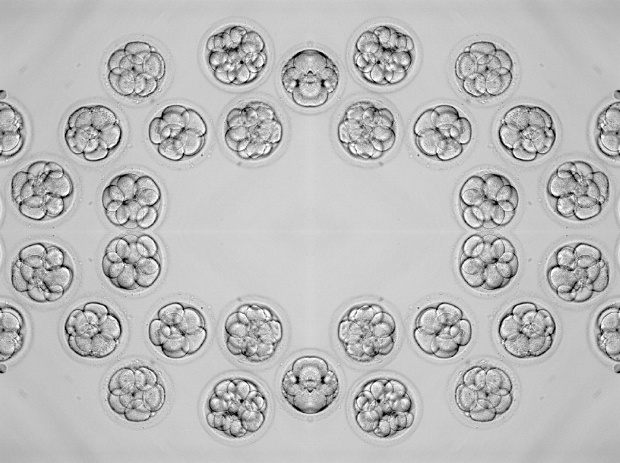We’re all familiar with earning grades in school but did you know embryos are graded, too?
When couples go through in vitro fertilization (IVF) eggs that are fertilized are monitored to see if they develop into embryos and before one or more are implanted they will be graded. Specialists – embryologists – grade embryos in the lab to pick the highest quality in order to know which have the best chances of development and pregnancy. Grading is important as many couples seek to have just one embryo transferred to avoid multiple pregnancies. Grading is also used to select which of the embryos that are not transferred in the fresh cycle are good enough to be frozen for possible later use in a frozen/thaw transfer cycle.
Embryo grading is done in all IVF laboratories, but it remains a subjective process and IVF programs may vary in the types of grading system they use. There are cases where embryos with a poor grade still result in a pregnancy and those with a high grade do not. Still, it can help your doctor determine how many embryos to transfer and may also be diagnostic as the appearance of the embryos may signal whether there are issues with the quality of the eggs. It is important to note, however, that no grading method can reliably predict which embryo will produce live offspring.
Embryos are judged by looking at certain characteristics including the number and size of the cells, the rate of development, symmetry, inner cell mass, and other factors such as fragmentation where there is debris between cells. Grading systems can assign letter grades and/or numeric points. Grading also depends on the stage of development. It can occur on Day 3 at the cleavage stage when cells are dividing, or on Day 5, at the blastocyst stage after fertilization when there’s an inner cell mass.
 The embryo grading process uses an overall grade and stage with each embryo generally classified as good, fair or poor based on a subjective assessment of specific characteristics. A “good” rating means the embryo does not have visible imperfections or has minor imperfections while “fair” considers the embryo lacks good quality but is not excessively imperfect. Embryos with numerous imperfections are graded “poor.”
The embryo grading process uses an overall grade and stage with each embryo generally classified as good, fair or poor based on a subjective assessment of specific characteristics. A “good” rating means the embryo does not have visible imperfections or has minor imperfections while “fair” considers the embryo lacks good quality but is not excessively imperfect. Embryos with numerous imperfections are graded “poor.”
A highly rated embryo or a Grade 1 would have the right number of cells for the stage of development, cells even in size and little or no fragmentation. Those embryos rated lowest or a Grade 4, conversely, have few, if any, viable developing cells and a high level of fragmentation—more than 50%.
Methods for testing and selecting the best embryos to implant are constantly evolving and new work is underway to test for genetic health. Embryo grades do not currently include information about genes and it is too early to know for certain if such new techniques will make a difference to overall cumulative pregnancy rates.
As always, discuss with your fertility specialist the grades of your embryos. Your doctor can explain which grading system is used and what they look for to select the highest quality embryo to create a healthy baby.


